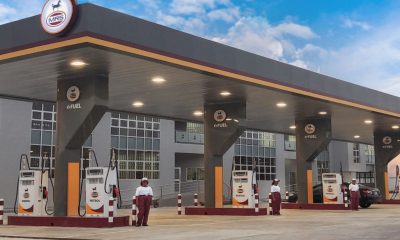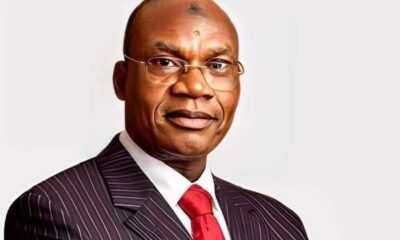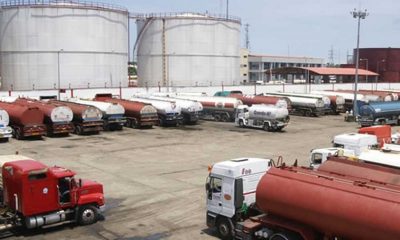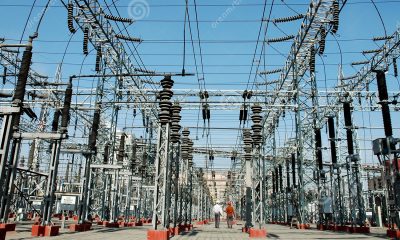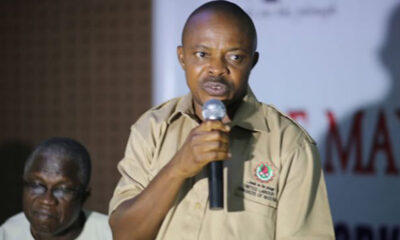metro
Petrol scarcity hits critical point nationwide as imports slump
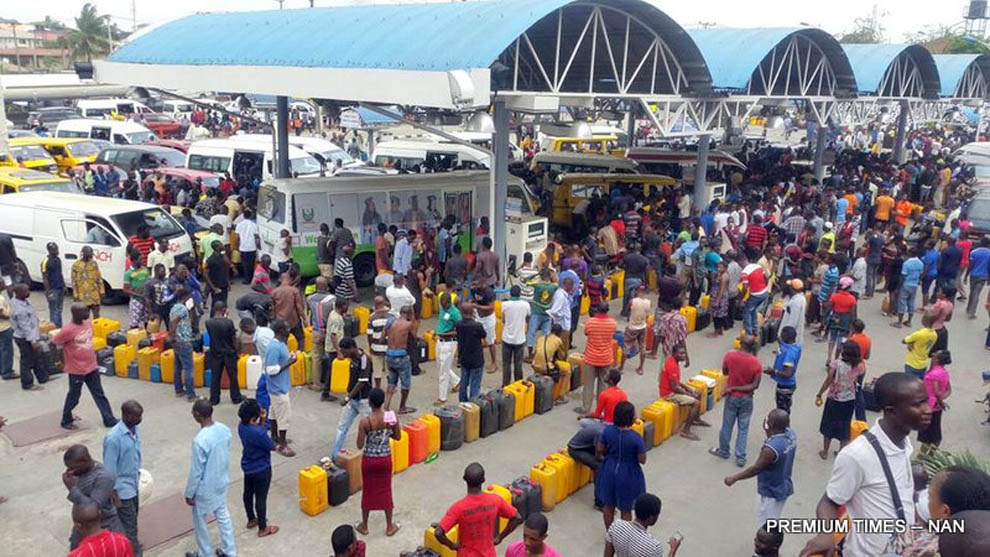
Petrol scarcity hits critical point nationwide as imports slump
The lingering petrol scarcity crisis in Nigeria has reached a critical point, with marketers unable to replenish their rapidly depleting stock.
As the shortage persists, amid the admission of $6billion debt to offshore product suppliers by NNPC Ltd, stakeholders are advocating for transformative measures to address the issue. They emphasise the urgent need to bolster domestic refining capacities and implement full deregulation of the petroleum sector.
They expressed worry that Nigerians may be on a long walk to freedom as NNPC Ltd, the sole importer of petrol, is currently cash-strapped and currently unable to sustain importation, leaving the country with a single option of hiking the price to reflect market realities.
Petroleum sector players have also urged the government to exhibit the boldness and resolve necessary to decisively end the subsidy regime, rather than imposing further hardships on the Nigerian populace.
The Publicity Secretary of the Crude Oil Refiners Association of Nigeria (CORAN), Mr. Eche Idoko, told Daily Sun that the current situation is a national disgrace, particularly for a nation endowed with abundant hydrocarbon resources.
He explained that the failure of the government to implement earlier recommendations by the last administration aimed at giving a boost to modular refinery operations in the country was responsible for the current crisis.
The CORAN Publicity Secretary said part of the recommendations was for the government to set aside about $11 billion special fund for modular refineries to empower them by scaling up their production to include petrol through the procurement of catalytic converters.
According to him, the other part of the recommendation was for the government to make available adequate crude oil for modular refinery operators.
READ ALSO:
- Man, wife in labour die in Niger auto crash on way to hospital
- Two suspected kidnappers arrested in Kaduna forest raid, many victims rescued
- Gunmen reportedly kill Edo assembly speaker’s aide
Idoko disclosed that as at today, the refining capacity of modular refineries is in the region of about 200,000 barrels per day, saying when that is added to the 650,000 barrels of Dangote Refinery, the country would have succeeded in being self sufficient and could still export to earn foreign exchange.
However, he said, those recommendations were never implemented when the new administration came on board and that has led the country to where it is today.
Also speaking, Mr Rabiu Bello, Senior Independent Non-Executive Director at Seplat Energy Plc., said that collaborating with local refineries to process the daily allocation of 445,000 barrels of crude oil, based on a tolling arrangement, would help the government secure petroleum products needed for domestic consumption and allow export of excess products.
In his intervention, the National President of the Petroleum Retail Owners Association of Nigeria (PETROAN), Mr. Billy Gilly-Harris, said this is the best time for the NNPC Ltd to bring back its refineries to operation, saying the nation cannot afford to continue with the lingering energy crisis.
He said it has now become obvious more than ever that the government was still subsidizing fuel and cannot continue to say otherwise under what they continue to call under-recovery.
Gilly-Harris said the Port-Harcourt and other refineries should be quickly commercialized in partnership with those that are serious to do business. The PETROAN President urged the government to as a matter of urgency completely deregulate the downstream sector and allow more private sector players to bring in products and sell at the appropriate price.
“Today, there is nowhere in the world where petrol has landed below $1. And looking at that amount in the Nigeria scenario, where our exchange rate keeps fluctuating. If it is landed at $1 in Nigeria including all associated costs, that should give you an idea of what the actual cost should be.
Some of the marketers who spoke to Daily Sun in separate interviews under anonymity projected that the continued intervention of NNPC Ltd in petrol pricing was no longer sustainable as the importer of last resort has finally come out to say the petrol cost was a strain on its finances.
They said Nigerians should be ready to pay the actual cost of petrol which they pegged at about N1,450 per litre, including all other associated cost.
Meanwhile, loading activities at the Apapa Depot recorded further decline yesterday, as fewer trucks were seen on the queue.
Some of the oil trading companies lamented that fewer cargoes were calling at the nation’s water, an indication that the level of imports have dropped significantly.
Already, petrol has hit N1,500/litre in various parts of Lagos and environs, while the product has skyrocketed to over N2,000 up north.
The frightening development has already taken a toll on transportation and food prices.
Many jurisdictions reported that transportation costs have doubled in the last 48 hours, just as the prices of goods and foods are at stratospheric heights.
Petrol scarcity hits critical point nationwide as imports slump
SUN
metro
Obi lied, I blocked him from visiting IDP camp for lack of courtesy – Alia

Obi lied, I blocked him from visiting IDP camp for lack of courtesy – Alia
Peter Obi and Governor Hyacinth Alia has given a reason for his blocking major opposition figure Peter Obi from visiting the IDP camp in Benue.
Mr Alia accused the Labour Party leader of violating standard protocols by failing to inform the governor ahead of his visit as courtesy demands.
Mr Alia, in an interview with TVC on Thursday, said Mr Obi was blocked from visiting the Benue IDP camp because his “intention” was unknown, and he violated protocols by not informing him in advance.
“A very respected Peter Obi was a governor. If you are coming into someone’s state, there are protocols. Very high personality; you are coming into someone’s state, and your party does not even know you are coming.
“I, the sitting governor, did not know you were coming. Then you are going into where I’m protecting even the most, the IDP camp. It’s my duty to protect them. They’ve been displaced. I need to protect them even some more. I don’t know the intent you have,” Mr Alia explained.
READ ALSO:
- Zulum meets with Cameroonian troops after deadly Boko Haram attack in Wulgo
- Tribunal upholds Nigerian government $220m fine against Facebook, WhatsApp
- Troops capture wanted bandit, recover cache of ammunition
He added, “Is it not courteous enough for me to know as a sitting governor and even to provide more security to you and prepare the minds of the IDPs that a guest is coming to visit them?”
The governor denied claims that he was unreachable when the former Anambra called to inform him of his visit.
“No, that’s not the right narrative. I can never politicise that. I’m the one bearing the brunt, pain and sorrows of the IDPs in my state,” Mr Alia stated. “No. That’s not the true story. If he (Mr Obi) couldn’t reach me, I have a chief of staff, I have an SSG, (and) I have a PPS. That’s not true.”
Last week, Mr Alia said he could not guarantee the safety of any individual or group visiting Benue without his knowledge or clearance, barring Mr Obi from visiting the state.
However, Mr Obi expressed displeasure at how Mr Alia’s government allegedly politicised his planned visit to the troubled Benue.
Obi lied, I blocked him from visiting IDP camp for lack of courtesy – Alia
metro
Zulum meets with Cameroonian troops after deadly Boko Haram attack in Wulgo

Zulum meets with Cameroonian troops after deadly Boko Haram attack in Wulgo
Governor of Borno State, Babagana Zulum, has expressed his deepest condolences to the Multinational Joint Task Force (MNJTF) following the recent Boko Haram assault in Wulgo, a border town with Cameroon.
Governor Zulum made the visit on Thursday to Cameroonian troops under Sector 1 of the MNJTF, where he also extended sympathies to both the government and citizens of Cameroon over the devastating attack.
In Wulgo, located roughly 15 kilometers from Gamboru Ngala, the Governor was welcomed by Major General Godwin Michael Mutkut, the Force Commander of the MNJTF.
“I am here to commiserate with you, and with the government and people of the Republic of Cameroon, over the recent unfortunate incident. I wish to salute your bravery and unwavering commitment to safeguarding lives and property in the region,” stated Governor Zulum.
READ ALSO:
- Tribunal upholds Nigerian government $220m fine against Facebook, WhatsApp
- Troops capture wanted bandit, recover cache of ammunition
- Police arrest two Kano men with N150m tramadol
The Governor also reaffirmed Nigeria’s commitment to supporting the MNJTF and Cameroon in their fight against terrorism and insurgency in the Lake Chad region.
“The Government of Nigeria will explore all possible avenues to complement the efforts of the Multinational Joint Task Force and the government of Cameroon to bring lasting stability to the Lake Chad basin,” he assured.
Alongside the Federal Government’s support, Governor Zulum pledged additional assistance from Borno State to the troops operating in the region.
The Governor was accompanied by Senator Kaka Shehu Lawan of Borno Central, Special Advisers Hon. Idrissa Jidda and Hon. Mustapha Dalatu, Hon. Yuguda Saleh Vungas, Chairman of the Borno State Social Investment Programme, the Chairman of Ngala Local Government Area, and his Principal Private Secretary.
Zulum meets with Cameroonian troops after deadly Boko Haram attack in Wulgo
metro
Tribunal upholds Nigerian government $220m fine against Facebook, WhatsApp

Tribunal upholds Nigerian government $220m fine against Facebook, WhatsApp
The Competition and Consumer Protection Tribunal on Friday delivered its judgment in the appeal filed by Meta Platforms Incorporated (Facebook) and WhatsApp LLC against the Federal Competition and Consumer Protection Commission (FCCPC), affirming the Commission’s authority and actions in nearly all the contested issues.
A statement signed by Ondaje Ijagwu, Director, Corporate Affairs of FCCPC, said the Tribunal specifically determined that the Commission complied with prevailing laws, discharged its mandate, and exercised its powers within the confines of the 1999 Constitution (as amended).
It ruled that the multiple actions by WhatsApp and Meta, for which the Commission made findings of violations, were correctly identified, and that the Commission did not err in making those findings.
“In addition to upholding the major aspects of the FCCPC’s Final Order, the Tribunal awarded the sum of $220 million against Meta Platforms Incorporated and WhatsApp LLC as an administrative penalty, and further awarded $35,000 to the FCCPC as cost of investigation.
“The tribunal’s three-member panel was led by Honorable Thomas Okosun,” the statement said.
WhatsApp and Meta’s legal team was led by Professor Gbolahan Elias (SAN) while the FCCPC’s legal team was led by Mr. Babatunde Irukera. Both teams had made their final arguments on behalf of their respective clients on January 28, 2025.
PlatinumPost reports that FCCPC had on on July 19, 2024, issued a Final Order imposing a $220 million administrative penalty after concluding that the companies engaged in discriminatory and exploitative practices against Nigerian consumers.
READ ALSO:
- Troops capture wanted bandit, recover cache of ammunition
- Police arrest two Kano men with N150m tramadol
- 2027: Ex-IGP Adamu eyes Nasarawa governorship
- Court urged to halt further release of LG allocations to Rivers State
The case arose from a 38-month joint investigation initiated by the FCCPC and the Nigeria Data Protection Commission (NDPC) into the conduct, privacy practices, and consumer data policies of Meta Platforms and WhatsApp.
Dissatisfied with the Order last year, Meta and WhatsApp appealed to the Tribunal, challenging both the legal basis and the findings of the Commission.
While ruling on Meta’s appeal, the Tribunal also validated the Commission’s investigative procedures and processes.
The Tribunal resolved Issues 1 to 7 largely in favour of the FCCPC, dismissing the appellants’ objections to the Commission’s findings, orders, and legal competence.
One of the central issues (Issue 3) which alleged a breach of fair hearing, was decided in favour of the Commission, with the Tribunal affirming that the FCCPC fully discharged its quasi-judicial responsibilities by affording the appellants ample opportunity to respond.
The Tribunal found no violation of constitutional due process.
On Issue 4, which questioned the Commission’s powers in matters of data protection and privacy, the Tribunal held that the FCCPC acted within its statutory mandate, reaffirming its authority under Section 104 of the FCCPA to regulate competition and consumer protection even in regulated industries.
READ ALSO:
- Benue: Seven killed by suspected herdsmen in midnight attack
- I’m honoured, excited over World Bank’s appointment – Dangote
- Akpabio to represent Tinubu at Pope Francis funeral
On Issue 5, which challenged the Commission’s findings regarding Meta’s privacy policies, the tribunal also resolved in the FCCPC’s favour. The Tribunal found no error in the Commission’s conclusions and held that the privacy policy in question did, in fact, offend Nigerian law.
While Issue 7 was largely resolved in favour of the Commission, the Tribunal set aside Order 7 of the Commission’s Final Order, stating that it lacked sufficient legal basis.
While expressing delight at the landmark judgement, FCCPC Executive Vice Chairman/CEO, Mr. Tunji Bello, thanked the Commission’s legal team for their exceptional diligence and forensic skills in assembling evidence and marshalling their argument.
He restated FCCPC’s unwavering commitment to not only championing the rights of Nigerian consumers but also ensuring fair business practices in the country in accordance with FCCPA (2018) and consistent with the Renewed Hope Agenda of President Bola Ahmed Tinubu.
Tribunal upholds Nigerian government $220m fine against Facebook, WhatsApp
-

 metro16 hours ago
metro16 hours agoOmokri : How Tinubu’s political mastery started with Abiola, says El-Rufai, Obi’s forces can’t stop him
-

 metro3 days ago
metro3 days agoI’m not in supremacy battle with Ooni, says new Alaafin
-

 Education9 hours ago
Education9 hours agoJAMB officials seize candidates’ hijab at Caleb varsity, Muslim students kick
-

 Entertainment2 days ago
Entertainment2 days agoP-Square: Jude Okoye freed after two months detention
-

 International9 hours ago
International9 hours agoUS releases 41 countries granted 90-day entry without visas (full list)
-
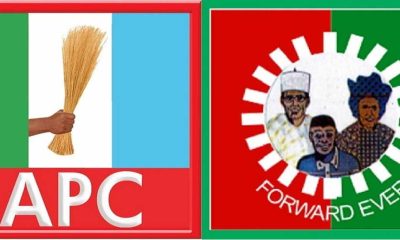
 Politics2 days ago
Politics2 days agoLabour Party collapses into APC in Plateau
-
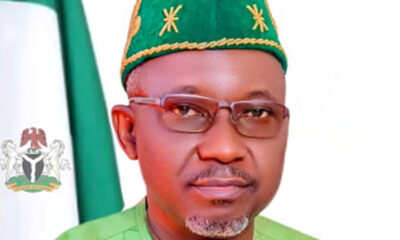
 Business3 days ago
Business3 days agoNigeria’s gas production increases by 15.6% to 227,931.65 mscf
-
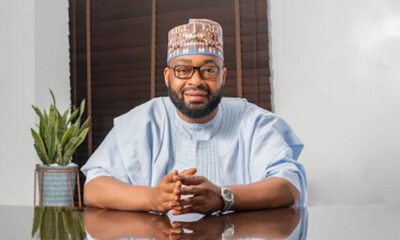
 metro2 days ago
metro2 days agoNiger Gov Bago makes U-turn on dreadlocks ban after backlash

